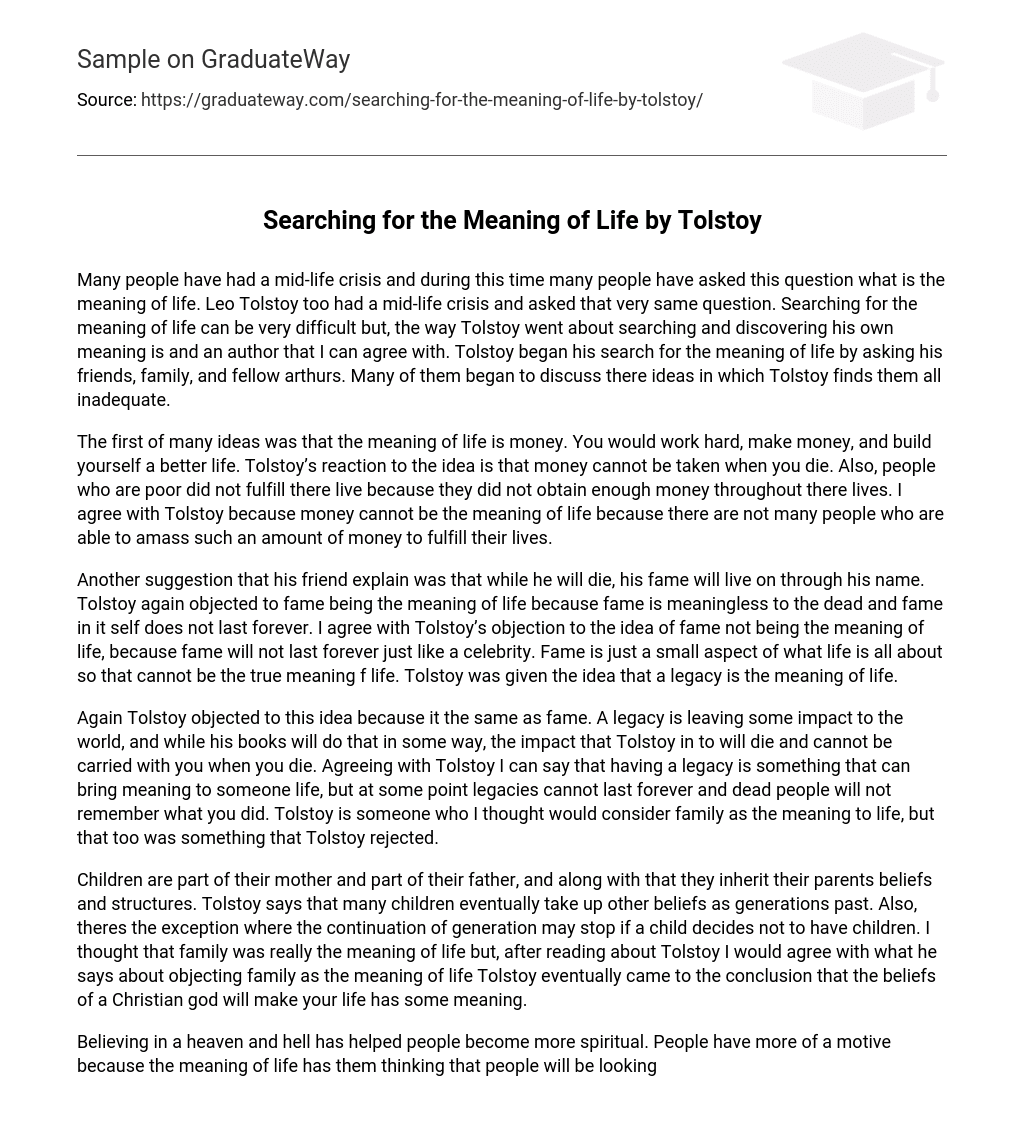In the midst of a mid-life crisis, individuals often ponder the eternal query: what is the significance of existence? A renowned author named Leo Tolstoy found himself confronting a similar quandary during his own personal turning point. The exploration for life’s purpose undeniably presents challenges, yet Tolstoy’s approach to this journey strikes a chord with me as a writer. Initially, he sought guidance from acquaintances, loved ones, and fellow writers, each proffering their unique perspectives. However, these notions failed to satisfy Tolstoy in his quest for genuine understanding.
One idea proposed was that the meaning of life is money. The concept suggests that by working hard, earning money, and improving one’s life, the purpose of existence is fulfilled. Tolstoy challenged this idea by pointing out that money cannot be taken with us when we die. Additionally, he argued that those who are poor have not lived fulfilling lives because they have not accumulated sufficient wealth. I agree with Tolstoy’s perspective because the meaning of life cannot solely be centered around money, as only a few individuals are able to amass a significant amount of wealth to truly fulfill their lives.
His friend offered another idea – that although he will die, his fame will endure through his name. Nevertheless, Tolstoy disagreed with this notion, asserting that fame holds no significance for the deceased and is not eternal. I concur with Tolstoy’s objection to the notion that fame is not the purpose of life because, like celebrities, fame is temporary and only a small part of what life encompasses. Tolstoy was presented with the concept that a legacy embodies the true meaning of life.
Once again, Tolstoy disagreed with this notion as it equated to fame. A legacy involves leaving a lasting impact on the world, and while his books will achieve this to some extent, the impact Tolstoy made will diminish and cannot be carried beyond death. I concur with Tolstoy’s viewpoint in that having a legacy can give purpose to one’s life, but eventually legacies fade away and deceased individuals will not recall one’s actions. Surprisingly, Tolstoy even rejected the idea of family as the meaning of life, which contradicts my initial perception of him.
Children inherit their parents’ beliefs and structures and are a combination of both their mother and father. According to Tolstoy, as generations pass, many children adopt different beliefs; however, if a child decides not to have children, the continuation of the generation may come to an end. Previously, I held the belief that family was life’s purpose; however, after reading Tolstoy’s perspective, I concur with his opinion that family should not be deemed the ultimate meaning of life. Ultimately, Tolstoy concluded that discovering significance in life can be accomplished by embracing Christian god’s beliefs.
Believing in the existence of heaven and hell has contributed to people’s spiritual growth as it provides them with greater motivation. The concept of an afterlife gives meaning to the purpose of life, leading individuals to anticipate something beyond the earthly realm. Tolstoy, an author whom I align with in terms of beliefs, exhibits a profound desire to make the most of life. Tolstoy carefully examines different perspectives on the meaning of life and ultimately forms his own conclusion based on thoughtful analysis.





